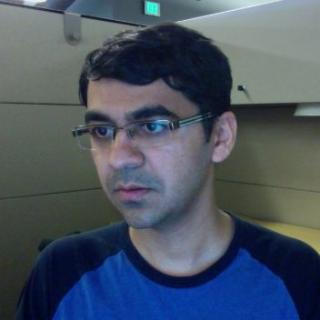Presentation: A Series of Unfortunate Container Events @Netflix
Abstract
Project Titus is Netflix's container runtime on top of Amazon EC2. Titus powers algorithm research through massively parallel model training, media encoding, data research notebooks, ad hoc reporting, NodeJS UI services, stream processing and general micro-services. As an update from last year's talk, we will focus on the lessons learned operating one of the largest container runtimes on a public cloud. We'll cover the migration we've seen of applications and frameworks from VM's to containers. We will cover the operational issues with containers that only showed after we reached the large scale (1000's of container hosts, 100's of thousands of containers launched weekly) we are currently supporting. We'll touch base on the unique features we have added to help both batch and microservices run across a variety of runtimes (Java, R, NodeJS, Python, etc) and how higher level frameworks have taken avantage of Titus's scheduling capabilities.
Interview
Andrew & Amit: Last year we talked about why we choose to build Titus, our container management platform. We also talked about the architecture and implementation of Titus. This year, we wanted to talk about lessons learned running and continuing to evolve this critical system at Netflix. We wanted to share the lessons learned providing Netflix required availability running this system at our unique levels of scale.
Andrew & Amit: We expect most attendees who are considering containers as part of their infrastructure to benefit with the lessons learned across the varied use cases we've seen benefit from containers. Additionally, those growing container environments from test and development will learn key lessons of what it takes to run containers in production. Finally, lessons learned only at Netflix scale will be presented. These final lessons of worldwide scale are usually academically interesting to most engineers.
Andrew & Amit:
1. What aspects to consider after deploying an off-the-shelf container management platform
2. How to think about reliability in the context of a large scale distributed container management platform
3. What levels of scale are possible, not through synthetic benchmarks, but real world container deployments
Andrew & Amit:
Q: Why is Netflix's container management platform different from other open source container management platforms?
A: Given our existing VM based cloud native infrastructure, we approached container management as an addition to our existing cloud platform -- instead of a replacement. This means a key to the success of Titus was deciding what Titus would not do, leveraging the full value other infrastructure teams at Netflix provide. This also meant leveraging Amazon Web Services (AWS) deeply seamlessly integrating VM's and containers while supporting existing operations and security models in AWS. Finally, it was important to consider how we choose workloads that benefited from containers as compared to pushing all workloads to containers.
Similar Talks

Tracks
Monday, 26 June
-
Microservices: Patterns & Practices
Practical experiences and lessons with Microservices.
-
Java - Propelling the Ecosystem Forward
Lessons from Java 8, prepping for Java 9, and looking ahead at Java 10. Innovators in Java.
-
High Velocity Dev Teams
Working Smarter as a team. Improving value delivery of engineers. Lean and Agile principles.
-
Modern Browser-Based Apps
Reactive, cross platform, progressive - webapp tech today.
-
Innovations in Fintech
Technology, tools and techniques supporting modern financial services.
Tuesday, 27 June
-
Architectures You've Always Wondered About
Case studies from the most relevant names in software.
-
Developer Experience: Level up Your Engineering Effectiveness
Trends, tools and projects that we're using to maximally empower your developers.
-
Chaos & Resilience
Failures, edge cases and how we're embracing them.
-
Stream Processing at Large
Rapidly moving data at scale.
-
Building Security Infrastructure
How our industry is being attacked and what you can do about it.
Wednesday, 28 June
-
Next Gen APIs: Designs, Protocols, and Evolution
Practical deep-dives into public and internal API design, tooling and techniques for evolving them, and binary and graph-based protocols.
-
Immutable Infrastructures: Orchestration, Serverless, and More
What's next in infrastructure. How cloud function like lambda are making their way into production.
-
Machine Learning 2.0
Machine Learning 2.0, Deep Learning & Deep Learning Datasets.
-
Modern CS in the Real World
Applied, practical, & real-world dive into industry adoption of modern CS.
-
Optimizing Yourself
Maximizing your impact as an engineer, as a leader, and as a person.
-
Ask Me Anything (AMA)












